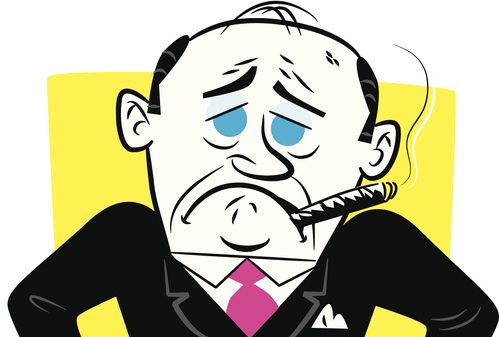House Democrats’ plans to pass a combined $4.7T budget reconciliation and infrastructure package foundered last week, resulting from a rift between moderate and progressive Democrats. President Joe Biden has committed to working on a compromise this month, which is further complicated by the reluctance of Senators Manchin (D-WV) and Sinema (D-AZ) to consider a spending package that size with numerous policy conditions attached.
Senate budget reconciliation rules constrain how much the bill can add to the deficit, so draftees seek “pay-fors” to lower the net cost. Some of the proposed tax provisions come from Senator Dick Durbin’s (D-IL) Tobacco Tax Equity Act, which the Congressional Joint Committee on Taxation recently estimated would raise $96B through massive increases on tobacco products. The legislation proposes, among other things, a 1,000 percent tax increase on premium cigars. The bill would achieve this by changing the tax basis from a percentage of the import price to a weight-based tax.
For decades, the primary arguments in favor of increased tobacco product taxes have been the public health costs of smoking-related illnesses and deterring youth consumption. Since 2013, the U.S. Food and Drug Administration (FDA) and National Institutes of Health (NIH) have regularly released a joint study called the Population Assessment of Tobacco and Health (PATH) Study, described as “a national longitudinal study of tobacco use and how it affects the health of people in the United States.” The Journal of American Medicine (JAMA) also published an April 2018 article, “Association of Cigarette, Cigar, and Pipe Use With Mortality Risk in the US Population,” using data from the U.S. Census National Longitudinal Mortality Study (NLMS).
The evidence from these studies strongly suggests there is no correlation between the vast preponderance of premium cigar smoking and public health costs and youth consumption.
Key points among the findings: .02 percent of respondents said they have smoked a premium cigar in the past 30 days; the average age for trying the first premium cigar is 30 years, compared to 16.7 for cigarettes; there is no meaningful correlation between premium cigar and cigarette smoking; average premium cigar users smoke 1.2 days out of 30, vs. 29.6 days out of 30 for cigarette smokers; 97 percent of premium cigar smokers do not smoke daily; and, most relevant to public health, the studies find no statistically significant increase in risk for smoking-related illnesses when comparing non-daily premium cigar smokers and nonsmokers.
Given the tiny set of the population affected, average age of smokers, and demonstrable lack of health risks, the effective motive for such proposals would appear to be revenue collection.
A tax increase of 1,000 percent, however, would certainly have a depressive impact on premium cigar sales. When considering analogous cigarette tax revenues, research from the National Taxpayers Union Foundation found “initial revenue projections were met in only 29 of 101 cases where cigarette/tobacco taxes were increased between 2001 and 2011. This means there is a 70 percent chance that a revenue estimate will be missed.”
Tax increases of this magnitude greatly increase the likelihood of black-market sales, a particular problem at a time when municipal police budgets across the country have been cut and many cities have experienced dramatic increases in crime.
The proposed tax increase also comes at a time when the nation’s economy is still recovering from the COVID-19 lockdowns and millions of working-age Americans remain unemployed.
The total U.S. cigar market is estimated at approximately $10 billion, with roughly 380,000 tobacco retailers in the country. A dramatic tax increase on that product could do further damage to an already weakened economy.











